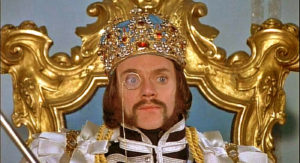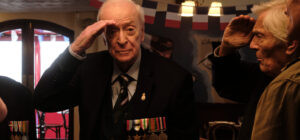Sathnam Sanghera is not fighting a “culture war”. The growing shelf of imperial history under his name might verge on the zone of engagement, and certainly emerged at a time of global reckoning over colonialism and race, but they are “not intended to be a salvo in the battle”. In the second paragraph of his new book Empireworld he is already complaining that he has been unfairly dragged into the “culture war” against his will. All he was ever trying to do, he insists, is “provide nuance” to the debate.
If the test of “nuance” is being criticised from all sides, then Sanghera’s books pass with flying colours. Critics on the Right panned his 2021 book Empireland for invoking “the Britain-loathing New York Times” and “that prodigious bore Fintan O’Toole”. On the Left, in a somewhat warmer review, Stanford’s Prof. Priya Satia admonished Sanghera for drawing upon works which have apparently been “debunked”, such as Jan Morris’s Pax Britannica trilogy (1973-8). Only on the shelves of Waterstones Dad are his books safe — but that remains a considerable and influential constituency, one that uses the genre of popular history to form its political worldview. So if that’s who’s reading him, what will they take away from these books? What does the Sanghera project amount to?
The breadth of his reading is part of the sell. A whopping 39% of Empireworld is notes and bibliography. And Sanghera is at pains to convince his readers that he is an honest broker, presenting himself as a blank slate, an autodidact, who having read as much as possible with an open mind has arrived at his own conclusions. He wrote Empireland not principally to edify his readers, but to “plug large gaps” in his own knowledge. Unlike the “culture warriors”, he comes with no axes to grind; he poses as a latter-day Leopold von Ranke, bravely telling the hard truths about British history “as it actually was”.
This rhetorical strategy has its advantages, but can make his books read like pell-mell compilations of quotations from various authors. Sometimes in Empireworld this works to launder ideas that strain credulity, such as the British Empire being responsible for last year’s floods in Pakistan, or the trauma of slavery in the Americas “epigenetically” disposing its modern-day descendants to workaholism and “the downplaying of achievements in public”. Other times, he ends up endorsing ideas which I doubt he sincerely holds. Notoriously, in Empireland he called for Britons to accept that “ultimately, multiculturalism is, in the words of the Jamaican poet Louise Bennett, just ‘colonizin’… in reverse’”. Aside from sounding awfully like a shot fired in the “culture wars”, I suspect that this would do more harm than good for race relations in Britain; and given that Sanghera does not approve of “colonizin’” but does approve of “multiculturalism”, he most likely shares this view.
But the main shortcoming of Sanghera’s books is that they tell us much more about their author’s own psychology, itself a product of an epistemic ferment of which the “culture wars” are part, than “how imperialism has shaped modern Britain” or “how British imperialism has shaped the globe”. The world around him is a Rorschach test, and he only ever sees one thing. These books have a picaresque flavour: we follow our maverick hero on his adventures as he entertains us with his party-trick, his unrivalled mastery at the game of “spot the colonial inheritance”.
At the beginning of Empireworld, we join him on his journey from New Delhi back to London, “noting down every imperial legacy we happen across”. The sniffer dogs at the airport remind him that the “international trade in cocaine was influenced, indirectly, by British imperial politics”. Encountering some other passengers drinking at the airport bar, he thinks about how “British imperialists spread drunkenness across the planet”. No respite is to be found on his 10-hour flight. That the actors on the TV screen are skinny is a legacy of “imperial attitudes”. And watching Ralph Fiennes “do a half-decent job of making Lord Voldemort appear forbidding” makes him think about the Hollywood trope of the “British baddie” (it’s odd to make this point about a franchise where all the characters are British), a trope which — “let’s face it” — is also down to empire.
All this retreads ground already covered in Empireland, which opens with a suggestion for how empire education could be integrated into P.E. lessons: “Playing football? The perfect opportunity to tell students that ‘kop’, the colloquial name for rising single-tier terraces at football grounds, originally comes from Spion Kop” (a battle in the Second Boer War). It can feel a bit like reading the diary of an undercover Martian, whose only knowledge about our world comes from Zulu, a Kipling anthology, and the British Empire’s Wikipedia page. There is of course nothing wrong with having historical obsessions and lively imaginations. “Have not the wisest of men in all ages, not excepting Solomon himself, had their hobby-horses?”, as Laurence Sterne’s Tristram Shandy once asked. But, as Shandy continues, a hobby-horse is to be indulged in only “so long as a man rides [it] peaceably and quietly along the King’s highway, and neither compels you or me to get up behind him”.
Sanghera wants us all to get atop his horse. When he plays his game of “spot the colonial inheritance”, he treats it as a terrible failing when others do not participate. Thus the “legacy of empire” must be taught more at school and university — at the expense of John Milton or the Ten Commandments if necessary. In the second chapter of Empireworld, we pace around Kew Gardens, our narrator lost in thought about the relationship between empire and botany. He is jolted by the “painfully polite”, “twee” atmosphere in the Kew Gardens café: how are we to tally this, he asks, “with the racism of influential botanists”? It is unclear what exactly Sanghera wants: perhaps every family enjoying a day out at Kew should be made to reflect on the supposedly bloody history of their surroundings. In fact he comes close to supporting such a regime elsewhere in the book. One of his interlocutors recommends that “every European tourist to Jamaica be lectured on the history before being allowed to collect their bags”, and Sanghera’s only reservation (I suppose a valid one) is that this would “fuel the culture war over colonialism in the West”. Again, Sanghera is placed at a remove from that culture war, though I doubt this idea would please Jamaica’s tourism industry, either.
Why must we play this game with him? Sanghera offers a different answer in Empireworld to the one given in Empireland. Empireland was essentially making a moral argument: we should think and talk and teach more about the empire because it’s the right thing to do. In Empireworld, however, morality takes a back seat. We now find ourselves in the hard-edged world of geopolitics and multipolarity and soft power.
Some portents of this did surface towards the end of Empireland. Among the unsettling instances of “imperialism” that Sanghera finds in Boris Johnson’s rhetorical repertoire are references to London being “the greatest city on earth”, Britain having the “best universities”, and Britain being “the leading military player in western Europe”. A less imperially afflicted mind would recognise these for the banal platitudes they are. Even Borat boasts that Kazakhstan is the “number one exporter of potassium”. But what Sanghera dislikes about this “world-beating” bluster is that, by being so apparently tactless about the imperial past, it somehow diminishes Britain’s standing on the world stage. This argument, which becomes the central thesis of Empireworld, is never properly explained.
Britain, on Sanghera’s account, is now too puny a nation to get away with not constantly drawing out the imperial connotations of everything it says and does. We have no choice but to play the game of “spot the colonial inheritance”. India, after all, is a “burgeoning superpower that will shape our future in all sorts of ways”, and apparently would like for us to play along. To make matters worse, the “conversation” about reparations is swiftly “leaving us behind”: “we will look increasingly irrelevant and ignorant if we continue not to engage”. Presumably an “engagement” consisting of a sharp and simple “no” is not quite what Sanghera is after. One has to wonder how many pounds we shall have to cough up if we wish to maintain our “relevance” in the world.
This emphasis on how Britain “looks” animates every page of Empireworld. It mars, for example, an otherwise intriguing discussion of the imperial roots of Britain’s third sector, and the British enthusiasm for animal charities in particular. The first wildlife conservation charities were set up, perversely, by big game hunters; British imperialists were “pioneers in extinction”. This, Sanghera says, is an “important thing to acknowledge within our national obsession for animal conservation and protection” — for “if we forget it, we risk looking cynical and hypocritical as we go about lecturing the planet”. When the King and the Prince of Wales bleat on about saving the rhinos, they are “seemingly oblivious to the fact that their ancestors were at the forefront of destroying some of these species in the first place”. Perhaps, however, they are not “oblivious” to this fact at all, and simply do not think it relevant that (to use one of Sanghera’s examples) Edward VIII once shot a tiger.
For all these flaws, there is a worthwhile book buried deep in Empireworld, one which could have “provided nuance” to a heated and often ugly debate. Every now and then, Sanghera says the sort of thing that ought to feature more prominently in discussions of imperial history: that empire was “unplanned” and “nebulous”; that it had “areas of grey, where seemingly opposite things could be true at once”; that it was “messy” and “full of contradictions”; that it “instilled chaos and spread democracy”. Near the end of the book we get some much-needed self-reflection: for all his inveighing against the hoary old balance-sheet question of whether the empire was “good or bad”, he confesses that he had himself “participated in a micro form of balance-sheet thinking myself”. No prizes for guessing which side he tended to come down on.
Alas, this tease of the sort of book that Empireworld might have been is forever snatched away from us in the conclusion. On the final page, returning to his fixation on “optics”, Sanghera recites a litany of all the things Britain “cannot” do until it somehow faces up to its imperial past. “We cannot lecture nations about homophobia without accepting that we determinedly enforced homophobia upon large parts of the world.” “We cannot negotiate climate change treaties without acknowledging that we were pioneers in inflicting man-made climate change upon the planet.” One might quite reasonably say in response that yes, we can, and yes, we should. In any case, this screed on the sins of empire rather gives the game away. For no “nuance” is here to be found: only a rousing battle-cry in the “culture war”.
Disclaimer
Some of the posts we share are controversial and we do not necessarily agree with them in the whole extend. Sometimes we agree with the content or part of it but we do not agree with the narration or language. Nevertheless we find them somehow interesting, valuable and/or informative or we share them, because we strongly believe in freedom of speech, free press and journalism. We strongly encourage you to have a critical approach to all the content, do your own research and analysis to build your own opinion.
We would be glad to have your feedback.
Source: UnHerd Read the original article here: https://unherd.com/




